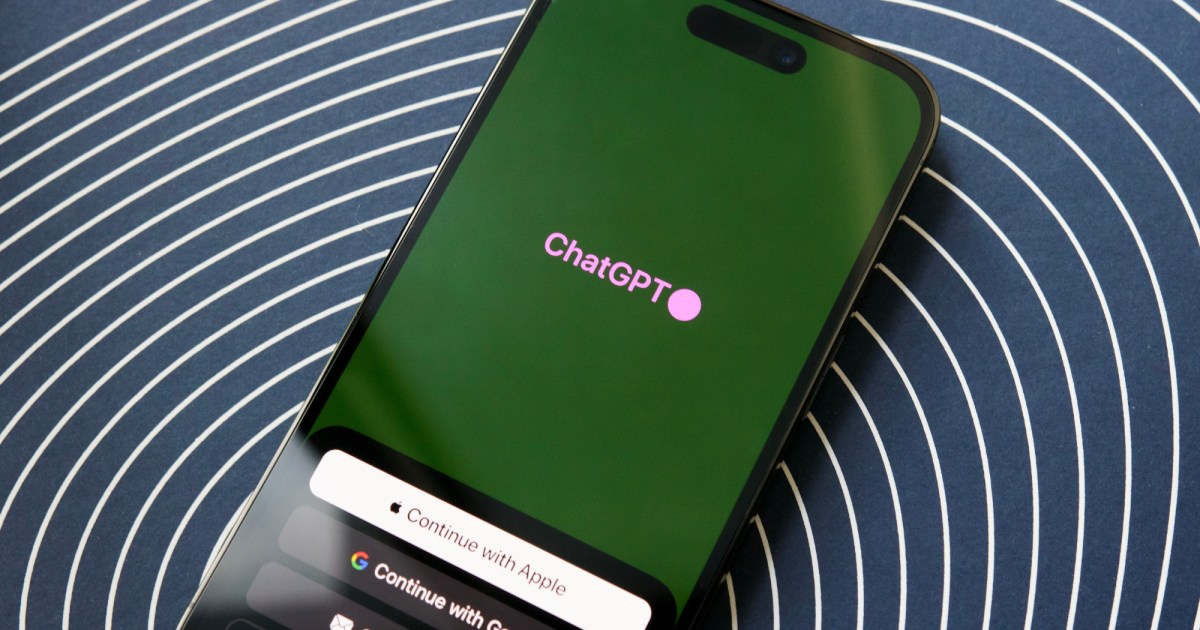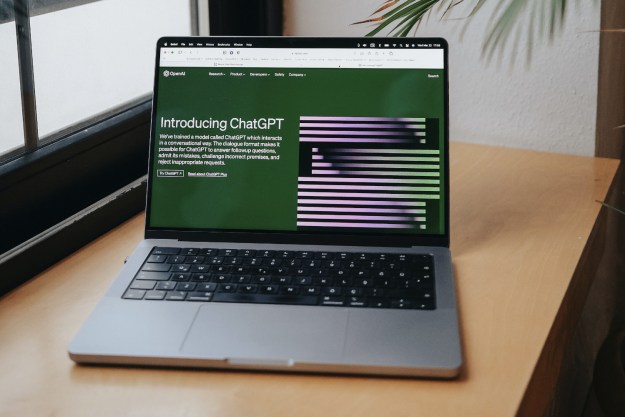Lawyer says sorry for fake court citations created by ChatGPT
A lawyer who used ChatGPT to help him prepare a court case has had to apologize after it was found that the chatbot had invented some of the information.

There has been much talk in recent months about how the new wave of AI-powered chatbots, ChatGPT among them, could upend numerous industries, including the legal profession.
However, judging by what recently happened in a case in New York City, it seems like it could be a while before highly trained lawyers are swept aside by the technology.
The bizarre episode began when Roberto Mata sued a Columbian airline after claiming that he suffered an injury on a flight to New York City.
The airline, Avianca, asked the judge to dismiss the case, so Mata’s legal team put together a brief citing half a dozen similar cases that had occurred in an effort to persuade the judge to let their client’s case proceed, the New York Times reported.
The problem was that the airline’s lawyers and the judge were unable to find any evidence of the cases mentioned in the brief. Why? Because ChatGPT had made them all up.
The brief’s creator, Steven A. Schwartz — a highly experienced lawyer in the firm Levidow, Levidow & Oberman — admitted in an affidavit that he’d used OpenAI’s much-celebrated ChatGPT chatbot to search for similar cases, but said that it had “revealed itself to be unreliable.”
Schwartz told the judge he had not used ChatGPT before and “therefore was unaware of the possibility that its content could be false.”
When creating the brief, Schwartz even asked ChatGPT to confirm that the cases really happened. The ever-helpful chatbot replied in the affirmative, saying that information about them could be found on “reputable legal databases.”
The lawyer at the center of the storm said he “greatly regrets” using ChatGPT to create the brief and insisted he would “never do so in the future without absolute verification of its authenticity.”
Looking at what he described as a legal submission full of “bogus judicial decisions, with bogus quotes and bogus internal citations,” and describing the situation as unprecedented, Judge Castel has ordered a hearing for early next month to consider possible penalties.
While impressive in the way they produce flowing text of high quality, ChatGPT and other chatbots like it are also known to make stuff up and present it as if it’s real — something Schwartz has learned to his cost. The phenomenon is known as “hallucinating,” and is one of the biggest challenges facing the human developers behind the chatbots as they seek to iron out this very problematic crease.
In another recent example of a generative AI tool hallucinating, an Australian mayor accused ChatGPT of creating lies about him, including that he was jailed for bribery while working for a bank more than a decade ago.
The mayor, Brian Hood, was actually a whistleblower in the case and was never charged with a crime, so he was rather upset when people began informing him about the chatbot’s rewriting of history.
Editors' Recommendations
Is ChatGPT creating a cybersecurity nightmare? We asked the experts Nvidia is bringing ChatGPT-style AI to video games, and I’m already worried ChatGPT: How to use the AI chatbot that’s changing everything Is Apple making its own version of ChatGPT? It seems that way OpenAI’s new ChatGPT app is free for iPhone and iPad![]()
Not so many moons ago, Trevor moved from one tea-loving island nation that drives on the left (Britain) to another (Japan)…
What is ChatGPT Code Interpreter and how to use it
The latest buzz around OpenAI's ChatGPT chatbot is that it can now access the internet and run plug-ins. You need to be a ChatGPT Plus subscriber, but if you are, the feature is widely available, and it's gotten a lot of people very excited. Why? Because it lets ChatGPT do a whole lot more. In fact, some of its most dedicated users are already putting it to work in new and exciting ways.
From visualizing every lighthouse in America to converting images to text and even doing some video editing, ChatGPT's code interpreter gives it all kinds of exciting new abilities.
What is ChatGPT Code Interpreter?
The ChatGPT Code Interpreter is one of a handful of new plug-ins that you can add to the standard ChatGPT experience to augment and improve its abilities. It makes it possible to run Python code within a chat with ChatGPT, with additional options to upload and download files. You can then further adjust the code, or have ChatGPT make its own changes and suggestions.
Professor flunks entire class based on ChatGPT’s false claims
While the ethics of using artificial intelligence to commit academic dishonesty has been a hot topic for several months, one teacher has found himself in the hot seat for using ChatGPT carelessly against his own students.
An entire class at Texas A&M University–Commerce was accused of plagiarism and had their diplomas temporarily denied after a professor incorrectly used ChatGPT to test whether the students used AI to generate their final assignments, according to Rolling Stone.
These 2 new ChatGPT features are about to change everything
ChatGPT Plus subscribers will soon get a much more powerful version of OpenAI's large language model, allowing it to access plugins and the internet. This will dramatically expand the capabilities and usefulness of the world's most famous chatbot.
OpenAI shared the news via a tweet linking to the latest ChatGPT release notes. Web browsing and plugin access will begin as an optional beta feature that can be enabled in settings.

 Aliver
Aliver 



































